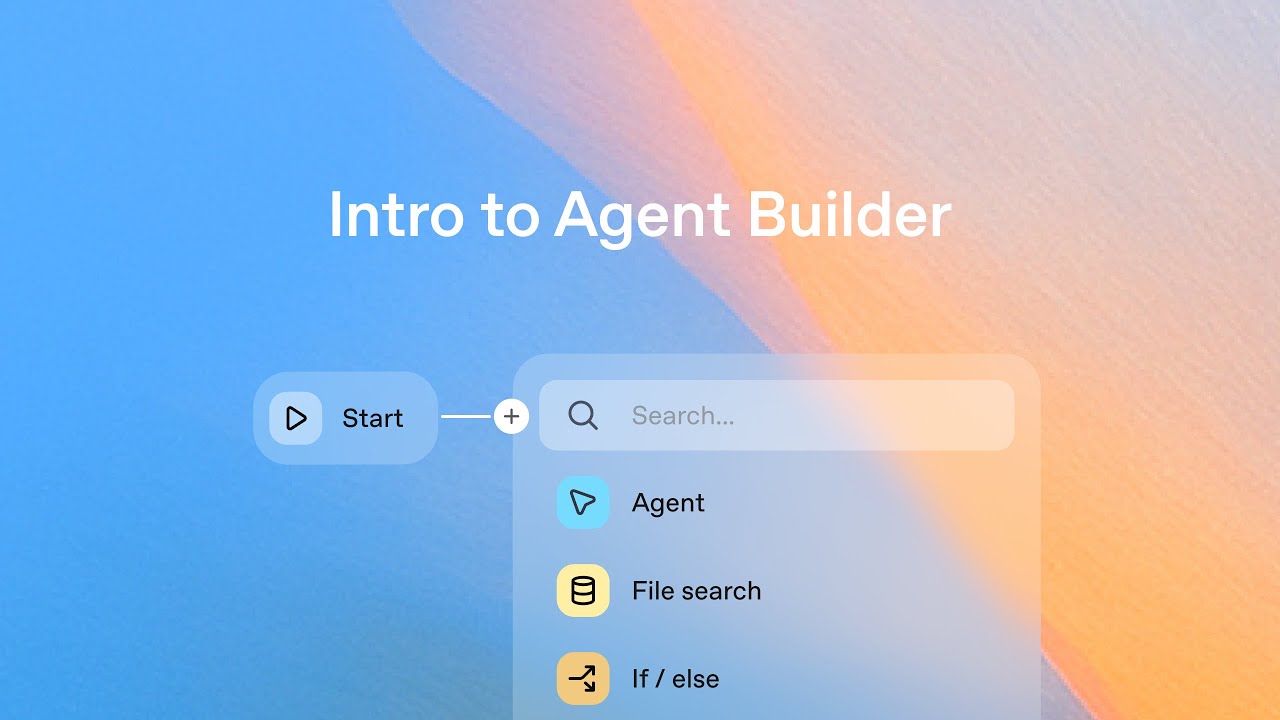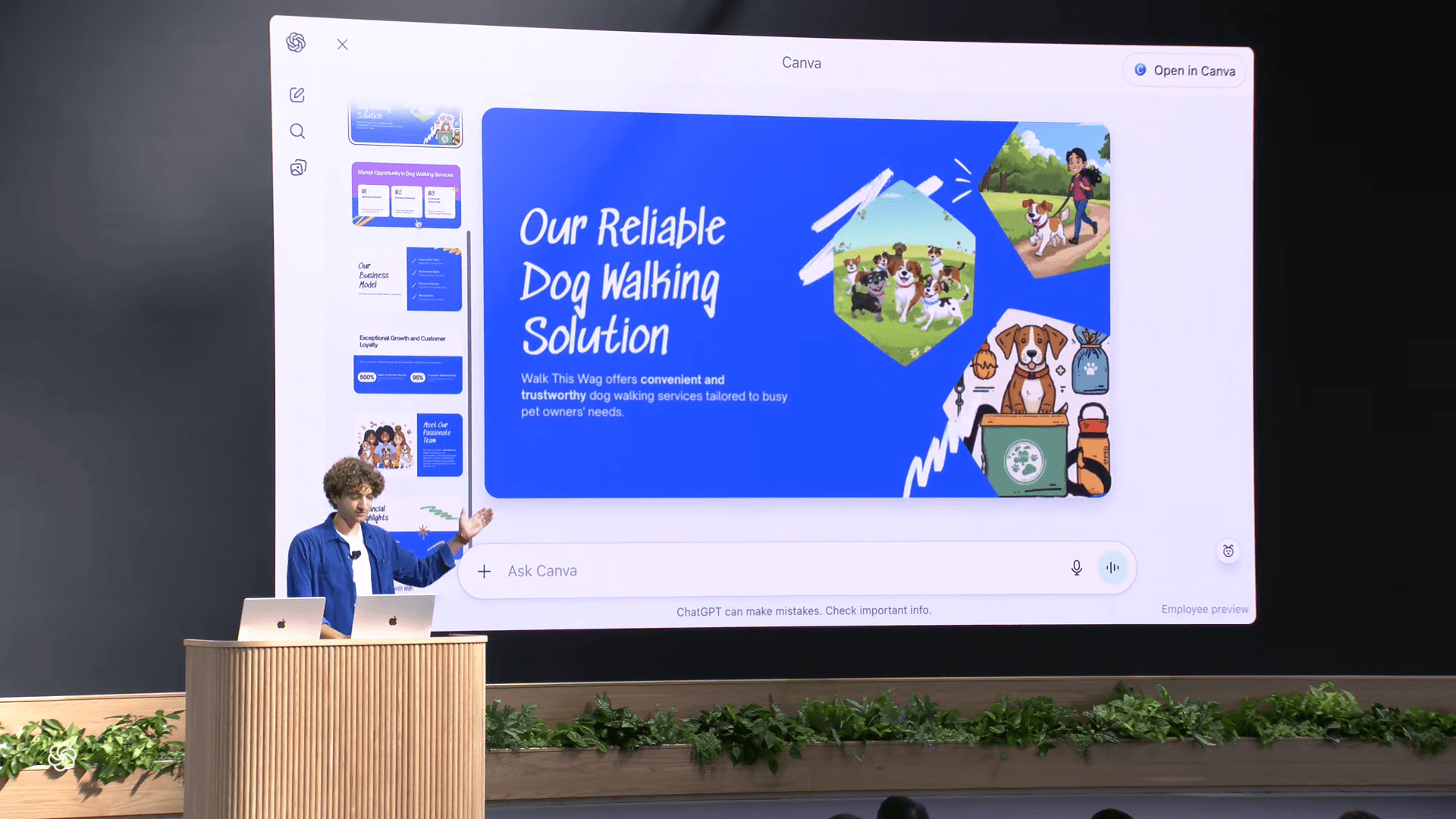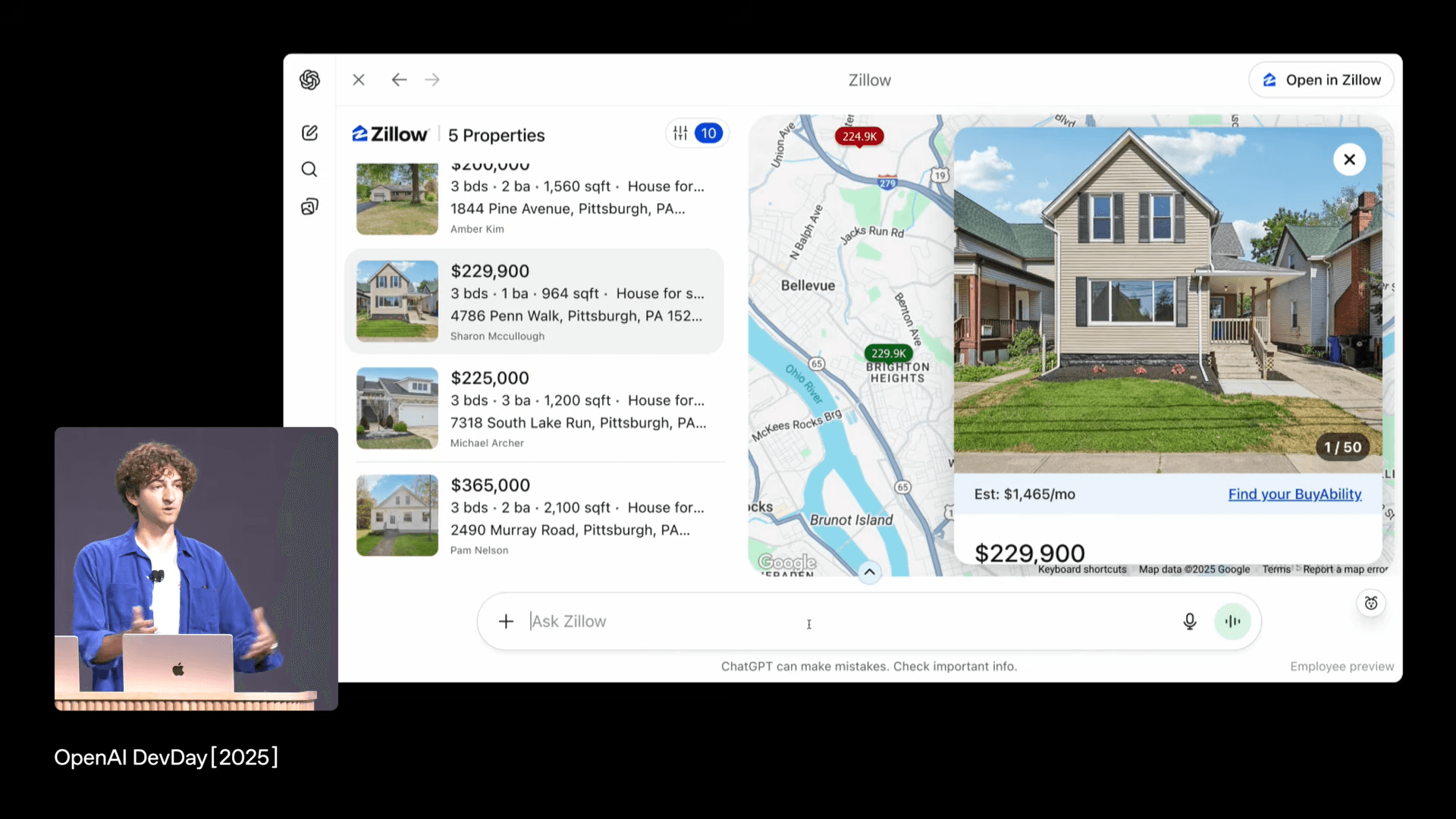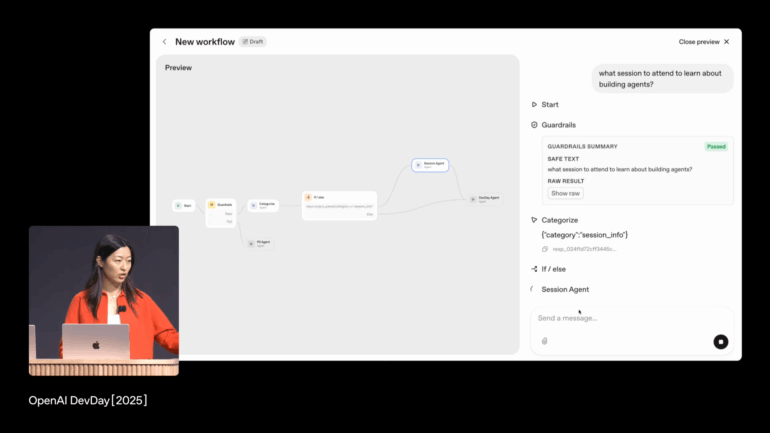Developers can now build and deploy both apps and agents directly on the ChatGPT platform

Key Points
- OpenAI introduced a new Apps SDK at Dev Day, making it possible for developers to build and plug complete applications right into ChatGPT, where users can control these apps with natural language in the chat.
- These apps show up directly in the conversation, support HTML, offer login features, and use a new payment system. OpenAI also plans to launch an app directory for third-party providers, including ways for them to earn money.
- With AgentKit, developers can build independent AI agents that handle tasks for users. The toolkit includes a visual agent builder, ChatKit for chat interfaces, tools to check performance, and connectors for outside data sources.
OpenAI is moving ChatGPT toward a platform for third-party apps and AI agents, introducing new developer tools at this year's Dev Day.
ChatGPT now supports third-party apps
With the new Apps SDK, developers can build interactive apps that run directly inside ChatGPT. These apps appear right in the chat, support full-screen mode, and can pass context to the language model. The SDK builds on Anthropic's Model Context Protocol (MCP), adding features like HTML rendering, login, and a payment protocol. In one demo, a Canva app generated a poster for a dog service business and then created a matching pitch deck.

Another demo showed a Zillow app displaying Pittsburgh real estate on an interactive map, answering follow-up prompts like "Only with a garden" or "How close is this to the dog run?"

At launch, apps from Booking.com, Canva, Coursera, Expedia, Figma, Spotify, and Zillow are available, with DoorDash, OpenTable, Target, and Uber set to follow. Apps are currently available to signed-in users outside the EU on Free, Go, Plus, and Pro plans, with EU support planned.
Developers can set up how their apps work and look, connect them to existing backends (with options for login and premium features), and test everything in ChatGPT's developer mode. OpenAI also offers sample apps, design tips, and a sandbox for testing. An app directory and options for subscriptions or one-time payments are on the way. The SDK is expected to fully replace the old ChatGPT plugins, which were not discussed at the event.
AgentKit: Tools for building AI agents
OpenAI is rolling out tools for building autonomous agents that can perform tasks for users. The new AgentKit is a toolkit for developing, deploying, and optimizing agents. The core feature is the Agent Builder, a visual tool for assembling workflows with drag-and-drop. Other components include ChatKit for chat interfaces, Evals for testing, and a Connector Registry for managing data access across workspaces.
During a live demo, OpenAI built an agent in eight minutes that recommended Dev Day sessions to attendees. The agent was published instantly and could be shared by URL or embedded elsewhere. Security guardrails, an open source library, can be added to detect personal data or block jailbreak attempts.

Agents can be further customized with Reinforcement Fine-Tuning (RFT), which is now in private beta for GPT-5. Some features, such as custom tool calls and graders, are already available to selected partners.
Agent Builder is still in beta, while ChatKit and the updated Evals features are already generally available. The Connector Registry is rolling out to API, ChatGPT Edu, and Enterprise customers. All features are included in standard API pricing. OpenAI is also working on a standalone Workflows API and new deployment options within ChatGPT.
GPT-5 Pro, gpt-realtime-mini, and Sora 2 now in the API
OpenAI has released GPT-5 Pro for the API, bringing its most advanced language model so far. GPT-5 Pro uses more compute to handle complex tasks, accepts both text and image input (but outputs text only), supports a 400,000 token context window, and allows up to 272,000 output tokens. The model is only accessible through the Responses API with the reasoning.effort: high setting.
Pricing is $15 per million input tokens and $120 per million output tokens, a significant increase in output pricing over o3-Pro ($20/$80). GPT-5 Pro does not support code execution and is designed for multi-turn interactions. For longer requests, OpenAI suggests using background mode, since responses can take several minutes.
OpenAI also introduced gpt-realtime-mini, a model that's about 70 percent cheaper than the previous real-time API. Sora 2, the model behind the Sora app, is now available through the API as well. Another addition is gpt-image-1-mini, a lower-cost version of OpenAI's image processing model. According to OpenAI, it's roughly 80 percent less expensive than the previous version and is designed for developers who want to scale image-based applications at a lower cost.
Codex now generally available
OpenAI's coding assistant Codex is now generally available after a tenfold increase in usage since the launch of Codex cloud agents in May. New features include Slack integration for coding in team chats, an SDK for custom workflow integration, and new admin tools for managing environments, configurations, and usage analytics. The SDK currently supports TypeScript, with more languages coming, and a GitHub action is available for CI/CD.
OpenAI also shared an update on usage: ChatGPT now has over 800 million weekly users, with more than four million developers building on the platform. API traffic has reached six billion tokens per minute, a jump from 100 million users and two million developers in 2023.
AI News Without the Hype – Curated by Humans
As a THE DECODER subscriber, you get ad-free reading, our weekly AI newsletter, the exclusive "AI Radar" Frontier Report 6× per year, access to comments, and our complete archive.
Subscribe now